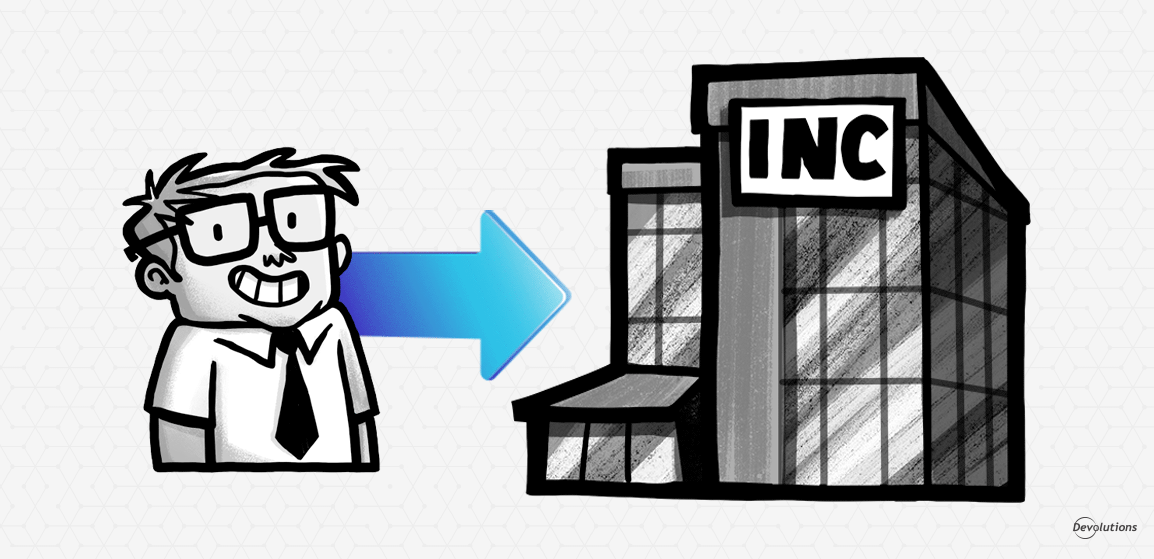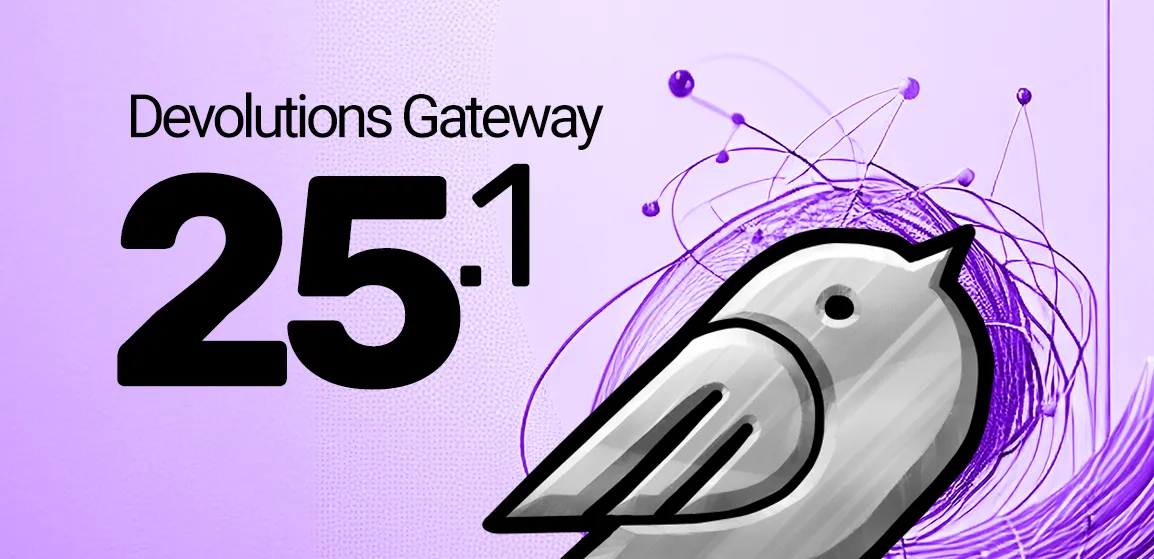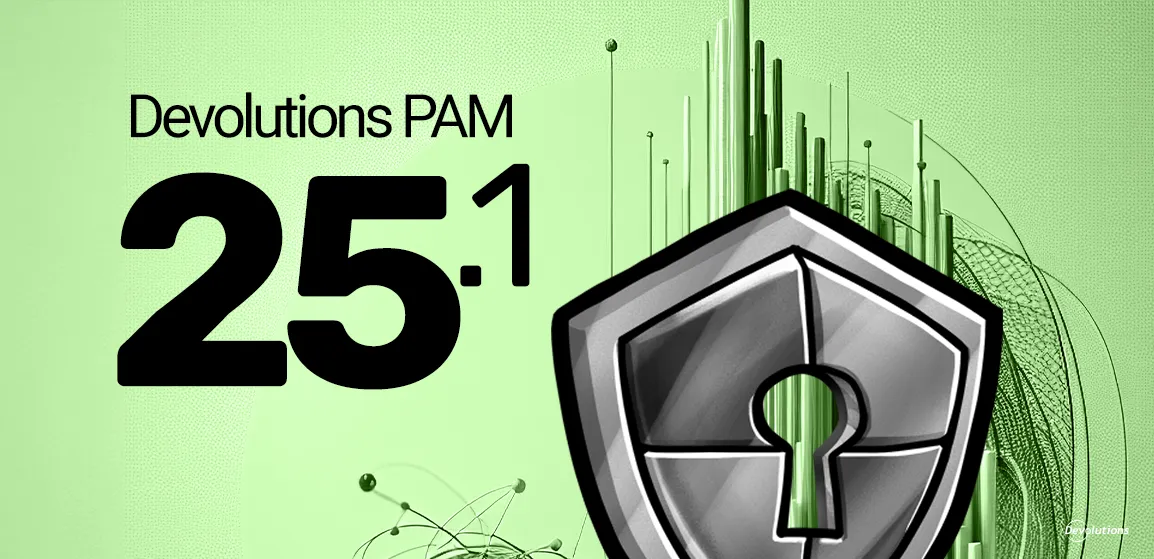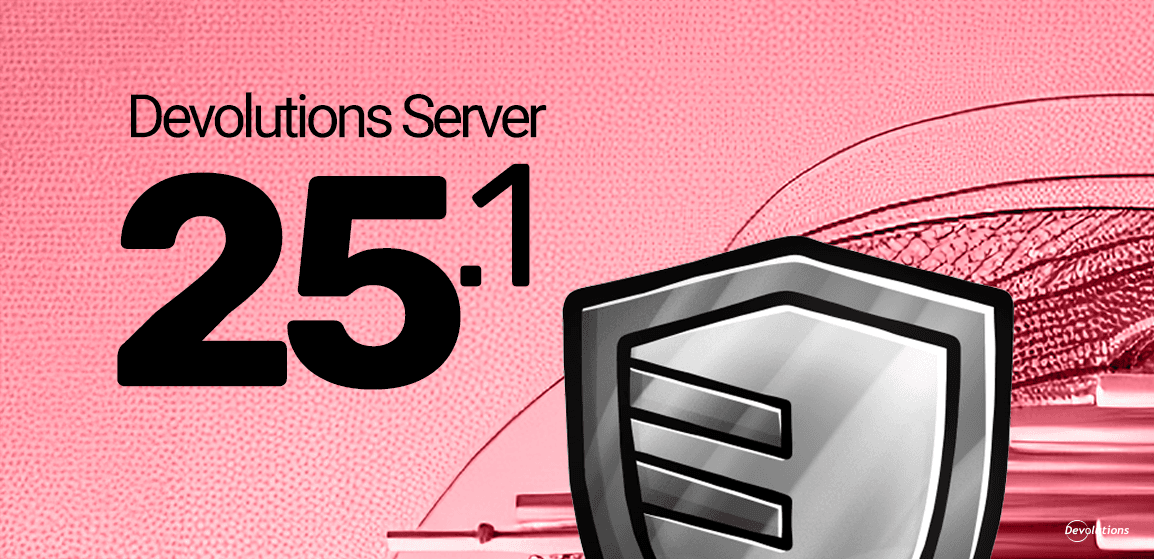Just like all of you, here at Devolutions we take pride in our work. And one of the things that gives us a great deal of satisfaction is that Remote Desktop Manager Free isn’t nagware, donationware or trialware. It’s a powerful, secure, flexible and regularly-updated solution. And yes, of course, it’s free!
With this in mind, we often receive inquiries from current and potential customers about whether they should choose Remote Desktop Manager Free or upgrade to Remote Desktop Manager Enterprise (which is not free). If you’re also wondering what to do, this article is for you!
The Short Answer
The short answer is this: Remote Desktop Manager Free is designed for individual IT pros, while Remote Desktop Manager Enterprise is designed for IT teams (co-located and remote) who need to share remote connections and privileged passwords. Here is a handy side-by-side comparison of the two solutions.
The Longer Answer
The longer answer is that, as you’d expect, Remote Desktop Manager Enterprise offers several features that are not available in Remote Desktop Manager Free. Here are some of the features that are particularly important and useful for teams:
1. Enhanced Password Management
With Remote Desktop Manager Enterprise, teams can integrate with existing password managers such as 1Password, AuthAnvil, Dashlane, KeePass, Keeper, LastPass, and more. Teams can also directly import credentials from these third-party applications.
2. Centralized Database
With Remote Desktop Manager Enterprise, teams can operate efficiently and securely in a multi-user environment by sharing sessions using multiple data source types, such as Devolutions Server, MariaDB, Microsoft SQL Azure and Microsoft SQL Server. Teams can also export and import data source configurations to simplify deployment for multiple users.
3. Custom Installer Service
Remote Desktop Manager Enterprise includes our Custom Installer Service. Here is how it works: a copy is made from a Remote Desktop Manager instance and used to create an installer file (*.rdi). This file then creates the installation package. The configuration can contain license serial numbers, data sources, credentials, database templates, and more. We recommend designating a Remote Desktop Manager instance that is used specifically to create the installation package.
To learn more, please visit: https://help.remotedesktopmanager.com/index.html?installation_custominstallerservice.htm
4. RDM Jump
Remote Desktop Manager Enterprise offers built-in RDM Jump functionality, which lets teams connect to a remote host — often called a Jump Box or a Service Host — which in turn is used to connect to other hosts (similar to Microsoft’s RD Gateway). For security, RDM Jump only allows connections from a specific IP address, and only grants access to hosts that are accessible from the jump box. It’s ideal for teams that cannot always access a private network but need to remain productive and efficient.
To learn more, please visit: https://help.remotedesktopmanager.com/index.html?overview_whatisrdmjump.htm
5. Offline Mode
Remote Desktop Manager Enterprise supports offline mode, which is very important for teams that temporarily cannot access the internet due to an unavailable or unreliable connection. Users simply access a local copy of the data source. All changes are automatically saved and synced back to the shared data source once internet access has been restored. For security, offline files are encrypted using our own private key, which is then mixed with some unique information taken from the local machine (a passphrase can also be used). To learn more about setting up offline mode, please read Jenny’s recent article that has step-by-step instructions for setting everything up.
6. Advanced Reports
There’s an adage in the IT world that says, “If it’s not documented, it doesn’t exist”. Remote Desktop Manager Enterprise supports advanced reporting for teams, which provides the ability to:
- Capture all events related to privileged account operations, including login attempts and history.
- Get a clear view of password access and audit traces.
- Generate detailed access logs to keep track of privileged user activity.
- Identify all users who are currently connected to servers within the same repository.
- Get connection alerts for users who are already connected.
- Generate detailed reports of failed login attempts and history.
7. Session Recording
Remote Desktop Manager Enterprise features built-in user session recording for any RDP, SSH, VNC and ARD session. It’s ideal for teams that want to review a specific support session, or if teams need evidence for a boss/customer about what was done during a session.
To learn more, please visit: https://blog.devolutions.net/2019/05/new-feature-session-recording-in-remote-desktop-manager/
The Bottom Line
If you’re still not sure which version is right for you, consider this: if you’re a single user and are happy with the functionalities and features of Remote Desktop Manager Free, then keep enjoying it! If you’re part of a team and your needs are more sophisticated and complex — especially when it comes to accessing a shared database — then Remote Desktop Manager Enterprise is for you.
Try Remote Desktop Manager Enterprise
Still not sure? Don’t worry — we have you covered! Simply request a free 30-day trial of Remote Desktop Manager Enterprise. After your trial period is up, you can either purchase a license and continue using the Enterprise version, or you can downgrade to the Free version and continue using it for as long as you wish.
Questions?
If you have any questions about either Remote Desktop Manager Free or Enterprise, please don’t hesitate to comment below, post in our forum, or email me directly at lcadieux@devolutions.net. We are here to help you.





